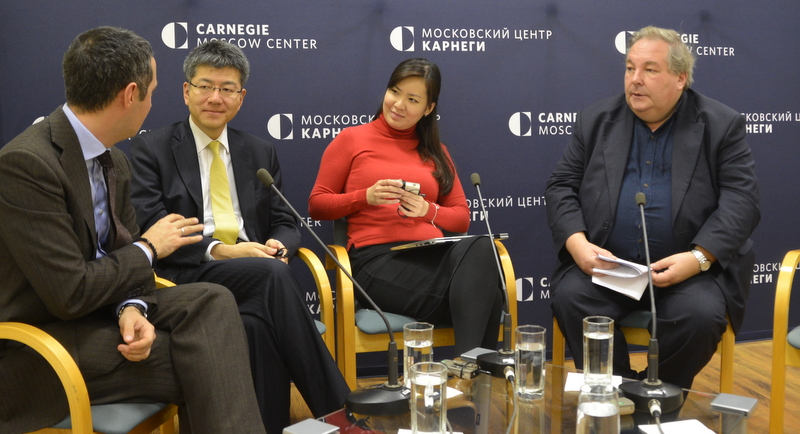Registration
You will receive an email confirming your registration.
Session 1
Session 2
Carnegie Moscow Center hosted a discussion about the current situation in Southeast Asia and the potential of Russian-Japanese cooperation in the region. The discussion was organized by the Institute of Oriental Studies of the Russian Academy of Sciences and the Carnegie Moscow Center.
The ten ASEAN countries form the most dynamically developing center in Asia. With aggregate GDP approaching $3 trillion and a combined population of 700 million, ASEAN promises to emerge as the world’s fourth largest economy by 2050. At the same time, Southeast Asia faces a number of serious challenges such as the threat of terrorism, the conflict in the South China Sea, and the competition between the Trans-Pacific Partnership (TPP) and the Regional Comprehensive Economic Partnership (RCEP). These challenges cannot be answered without the participation of ASEAN’s key dialogue partners including the United States, China, Japan, and Russia. Tokyo has been one of ASEAN’s key external partners for decades, while Moscow seeks to make its relations with the bloc one of the key vectors of its “Pivot to Asia” in the aftermath of last May’s Russia-ASEAN summit.
- What are the challenges facing ASEAN? Do the interests of Russia and Japan in this region align?
- Is there room for interaction and cooperation between Tokyo and Moscow in Southeast Asia?
Leading experts on the region from Russia, Japan, and Singapore discussed these issues. Alexander Gabuev, Chair of the “Russia in the Asia-Pacific” program, moderated.
Nobuhiro Aizawa
Nobuhiro Aizawa is an assistant professor at Kyushu University.
Irene Chan
Irene Chan is a research fellow at the S. Rajaratnam School of International Studies, Singapore.
Alexander Gabuev
Alexander Gabuev is a senior associate and the chair of the Russia in the Asia-Pacific Program at the Carnegie Moscow Center.
Evgeny Kanaev
Evgeny Kanaev is a professor at the Higher School of Economics.
Yekaterina Koldunova
Yekaterina Koldunova is deputy dean of the Faculty of Political Science, MGIMO University.
Dmitry Mosyakov
Dmitry Mosyakov is the director of the Center for Southeast Asia, Australia and Oceania Studies of the Institute of Oriental Studies of the Russian Academy of Sciences.
Akio Takahara
Akio Takahara is a senior fellow and a professor at the University of Tokyo.
Dmitri Trenin
Dmitri Trenin is the director of the Carnegie Moscow Center.
